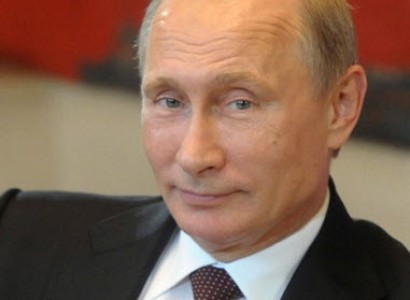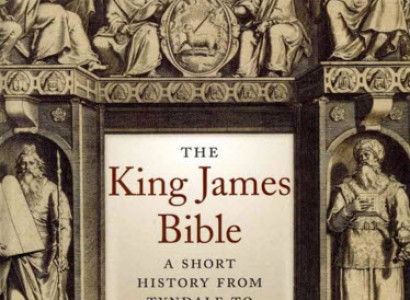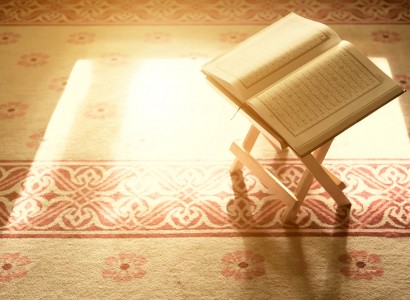
When Charlie Hebdo published cartoons of The Prophet Mohammed early in 2015 there was a violent and deadly backlash. The magazine’s office were invaded and several employees were murdered in cold blood. A few years ago a Danish magazine published other cartoons and there was a vociferous Muslim outcry. These and other events have prompted many commentators, comedians and controllers of various media to speak in defence of the ‘freedom of speech’. Why should they restrain themselves when discussing Islam? A new phrase ‘self-censorship’ has been coined and applies explicitly to matters with a Muslim and Islamic links. The implication is that commentators are being asked by the state or the establishment voluntarily to impose restrictions on what they say. Let me say from the outset that I am not a Muslim but I have a personal interest in the history of religious practices and from that an interest in interfaith issues. Until late in life I had no idea what about Islam. Like many older people, my religious education did not introduce Islam as a religion, but from history I learned that Moors were ‘alien invaders’ spreading across North Africa until they were halted in Spain by Christians. My [...]
The post How do you balance between free speech and criticism of religion? appeared first on Religious Reader.
Continue Reading
More than 40 Syrian rebel factions have condemned the Russian involvement in a war that almost brought President Bashar al-Assad a “crushing defeat”. The United States views the Russian bombing of CIA-backed rebel forces as an intentional act. Nor can Russia stop ‘volunteers’ fighting in pro-Assad ranks. For some, this is a continuation of an old alliance. Russia’s ties with Syria deepened when the Soviet Union forged a military alliance with Bashar al-Assad’s father, Hafez. As Charles Lister argued “Russia’s claim that its forces are there only to target Islamic State should be taken with a large grain of salt”. In spite of this continued crisis, Russian President Vladimir Putin continues to draw support from the British far-right. Britain First wrote “We say well done Russia and good luck!” when news of the first airstrikes broke. The party accepts the Russian narrative without question – including the annexation of Crimea. Britain First extends a measure of support to Assad’s regime as a buffer against the competing totalitarianism of ISIS. A recent pro-Assad Facebook post read “TYRANTS DON’T VOLUNTARILY OFFER TO STEP DOWN. ASSAD HAS BEEN FIGHTING ISIS AND AL-NUSRA FROM DAY ONE. THE WEST’S ACTIONS IN SYRIA HAVE ONLY FACILITATED [...]
The post Why the far-right consider Vladimir Putin their Christian vanguard against Islam appeared first on Religious Reader.
Continue Reading
A rare copy of the King James Bible, dating back to the 17th Century, reappeared in Wales. A moment of curiosity from St Giles Parish Church’s vicar Reverend Dr Jason Bray in Wrexham led to its rediscovery. The National Library of Wales later confirmed its authenticity. Dr Bray told the Daily Post that “The title page and the last page are missing but other than that it’s in good condition”. The first edition King James Bible dates back to 1611 and is one of just 200 copies known to still exist. It is also known as the Authorised Version (AV) of the bible in English Other English language bible translations did exist before the seventeenth century. Yet, politics often got in the way of a standardised translation. The 1408 Constitutions of Oxford made biblical translations in England forbidden. This ban attempted to prevent a rise in English “Lutheranism”. Only the educated classes had access to the authorised translation of the bible – St Jerome’s Vulgate. William Tyndale (1494–1536) left for Germany in 1524 hoping to translate the New Testament into English. It took two years for a complete translation to appear in England and Scotland. His first attempt failed after [...]
The post Rare first edition of King James Bible from 1611 found in Wales appeared first on Religious Reader.
Continue Reading
Dr. Imam Mamadou Bocoum is a holder of two Masters and a PhD from The Muslim College, and Heythrop College, University of London. He is a lecturer in Islamic Studies; a Board member of the Muslim Law Council UK and an interfaith consultant. He is currently a consultant at Faith Matters and Tell Mama. Mamadou has authored a number of written works which have included: The Position of Jews and Christians in the Qur’an; Faith and Citizenship in Islam; The status of Women in Islam; Islamic Fundamentalism and the Qur’an. He can be reached at mbocoum@yahoo.com; Mamadou@tellmamauk.org. As noted earlier, Jews and Christian are People of the Book (Ahl al-Kitab) and defined in the Qur’an as those to whom divine revelation was given prior to the advent of the Prophet Muhammad. The Qur’an by referring to Christians and Jews as Ahl al-Kitab, confirms that they also possess divine scriptures. The term Ahl al-Kitab, made 32 appearances in the Qur’an. Mary, Jesus’ mother is distinguished in the Qur’an as the only woman for whom a chapter is named after, and the only woman’s name mentioned in the Qur’an. Her name made 34 appearances in the Qur’an. Jesus is mentioned in the [...]
The post Scholar’s corner: what does the Qur’an actually say about Jews and Christians? appeared first on Religious Reader.
Continue Reading
Dr. Imam Mamadou Bocoum is a holder of two Masters and a PhD from The Muslim College, and Heythrop College, University of London. He is a lecturer in Islamic Studies; a Board member of the Muslim Law Council UK and an interfaith consultant. He is currently a consultant at Faith Matters and Tell Mama. Mamadou has authored a number of written works which have included: The Position of Jews and Christians in the Qur’an; Faith and Citizenship in Islam; The status of Women in Islam; Islamic Fundamentalism and the Qur’an. He can be reached at mbocoum@yahoo.com; Mamadou@tellmamauk.org. Jews and Christians are referred to as Ahl al-Kitab (People of the Book), and are characterised in the Qur’an as those to whom divine revelations have been given prior to the advent of Islam. The Qur’anic reference Ahl al-Kitab indicates that they possess divine scriptures in much the same way Muslims do. The term Ahl al-Kitab made 32 appearances in the Qur’an. Some Muslims, however, and a number of Muslim commentators mainly with a literalistic reading of the Qur’an, argue that Muslims should have nothing to do with the Ahl al-Kitab. The latter, some Muslims argue, should convert to Islam because their religions [...]
The post Scholar’s corner: how do Abul A’la Maududi and Fazlur Rahman position Jews and Christians in the Quran? appeared first on Religious Reader.
Continue ReadingFour men accused of a faith-based hate crime will appear at York Crown Court on October 9 after a Christian teenager was allegedly the victim of four incidents that took place between July 2014 and May 2015. The York Press detailed how Andrew Addison, 30, and three others, are alleged to have filmed themselves assaulting the victim with a lit aerosol, taping a dummy to his mouth as he was bound to a chair, sending him a threatening message on Facebook, and binding the young churchgoer to a crucifix in early 2015. Christopher Jackson, 21, Alex Puchir, 37, and Joseph Richard Rose, 21, are charged alongside Addison with a religiously-aggravated assault in Hull. At an earlier court appearance, at York Magistrates Court, the prosecution alleged that the four accused men knew the victim was a committed Christian. Rose also faces additional charges relating to allegations of sending him a threatening message over Snapchat. Lee-Anne Robins-Hicks, defending the accused, indicated they would plead not-guilty.
The post Four men accused of ‘anti-Christian’ hate crime to appear in court appeared first on Religious Reader.
Continue ReadingHertfordshire Police arrested a man after three incidents of criminal damage caused at churches in Hitchin and Letchworth on August 25. A 38-year-old man from Letchworth was also arrested in connection with further incidents of criminal damage on August 26. The vandalism saw a stained glass memorial to World War I personnel smashed at St Mary’s Church, in Hitchin, alongside a depiction of Jesus Christ. Vandals attack St Mary's Church #Hitchin in an apparent religously aggravated crime any info call @HertsPolice on 101 pic.twitter.com/ha5QTdgWVP — HE Heritage Crime (@HEHeritageCrime) August 27, 2015 At St Paul’s Church, in Letchworth, the vandal threw more than 50 pieces of flint and brick through its windows. The attacks soon switched to St Mary’s, with the first incident at 2.10pm then 9pm. In total, damages total above £10,000. Before the arrest, Sergeant Stephen Oliphant told local press:”We are currently following a line of enquiry that they are religiously aggravated and, due to the damage caused to these historical buildings, the incidents are also being treated as a heritage crime”. In spite of the distress, Simon Moore, vicar of the Letchworth church, stressed forgiveness for the accused. Congregants banded together to sweep away broken glass. On [...]
The post Churches vandalised in ‘religiously aggravated’ attacks appeared first on Religious Reader.
Continue ReadingA dozen skeletons found in a rubbish dump were Jewish victims of Portugal’s Inquisition, according to researchers. The excavation team uncovered the remains in Evora, east of Lisbon, at the former Jail Cleaning Yard of the Inquisition Court. The dump functioned between 1568 and 1634. Inquisition manuscripts confirmed that 87 prisoners died when the jail was in use. The three male and nine female victims died with no funeral rights or burial goods. Researchers noted that “the sediment surrounding the skeletons is indistinguishable from the household waste layer where they were placed, suggesting that the bodies were deposited directly in the dump”. In death, the humiliation compounded those accused of being Jewish or heretics. Pope Gregory IX created the Inquisition in 1233, after a period of consolidation in Europe, to ensure heretics did not undermine papal authority. For example, they branded the Cathers and Waldensians heretics for their metaphysical Christian beliefs. Suspicion followed Jewish converts; some believed they continued to practice Judaism in secret. A converso faced fines, imprisonment or burning at the stake if found guilty of practising their old faith. Under the Inquisition, the accused had no right to face or question their accuser; it validated the testimonies [...]
The post Skeletons of Jewish victims of Inquisition discovered in Portugal appeared first on Religious Reader.
Continue ReadingIt is almost unthinkable to speak of violence without equating it with religion. This is true in many ways as Mark Juergensmeyer notes: “Violence has always been endemic to religion. Images of destruction and death are evoked by some of religion’s most popular symbols, and religious wars have left through history a trail of blood. The savage martyrdom of Husain in Shiite Islam, the crucifixion of Jesus in Christianity, the sacrifice of Guru Tegh Bahadur in Sikhism, the bloody conquests in the Hebrew Bible, the terrible battles in the Hindu epics, and the religious war attested to in the Sinhalese Buddhist chronicles indicate that in virtually every tradition images of violence occupy as central a place as portrayals of non-violence. This raises two haunting questions: why are these images so central, and what is the relationship between symbolic violence and the real acts of religious violence that occur throughout the world today”.[1] Juergensmeyer raises some interesting questions and René Girard believes “that [his] mimetic theory offers an exhaustive explanation of the phenomenon of religious-inspired violence”.[2] In contrast, Michael Kirwan confidentially claims that Girard anticipated ‘religiously-inspired’ violence and atrocities (including 9/11).[3] Therefore, one does not need to look further to understand this [...]
The post Scholar’s corner: what can René Girard teach us about religion and violence? appeared first on Religious Reader.
Continue ReadingFor more than 50 years, Catholic priests from New Zealand have sailed thousands of miles to the frozen desolation of the Antarctic. The US National Science Foundation invites New Zealand’s Catholic Church for the summer months. A select number of priests work at the whimiscally-titled Chapel of the Snows, at the US McMurdo Station on Ross Island. They provide the spiritual succour to research staff and scientists. But budget cuts and reduced religiosity among staff means the New Zealand diocese ends its tenure in the Antarctic. A military chaplaincy will continue to offer spiritual care and inter-denominational services. Father Dan Doyle, co-ordinator of the Catholic Church in Antarctica, told the Catholic Herald: “Before this digital age people felt very isolated and lonely; they were always under so much pressure, so I did a lot of counselling and peer support”. Email and Skype later replaced a 2-minute call on a ham-radio once a month. At peak summertime, Doyle (and four other priests) assisted up to 2,000 people. That number dropped to 1,200 in a decade. In the harsh winter months, the population drops to just 150 essential personnel. Every few weeks, they travelled 1,360km (845 miles) to the southernmost inhabited place [...]
The post Meet the last Catholic priest in Antarctica appeared first on Religious Reader.
Continue Reading